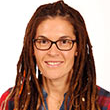Socio-cultural and Critical Approaches to Health and the Body
A special issue of Societies (ISSN 2075-4698).
Deadline for manuscript submissions: closed (1 November 2019) | Viewed by 16149
Special Issue Editor
Interests: socio-cultural and critical approaches to health and the body; qualitative research methodologies; people's engagement in health and physical activity; pre-service teacher education
Special Issue Information
Dear Colleagues,
Societies is now seeking manuscripts for a Special Issue: “Socio-cultural and critical approaches to health and the body.”
Making sense of what is familiar and taken-for-granted is not an easy task. Indeed, the aim of socio-cultural and critical studies is to ‘make the familiar strange’. To make the familiar strange is to question daily life as something profoundly complex and yet amenable to understanding. Bodies are everywhere and making sense of the body and health is part of our routine and taken-for-granted social behaviour. People construct their body with words, actions and meanings, in relationship with others and living in a specific society and culture.
The purpose of this Special Issue is to provide a collection of papers that examine bodies and health from a socio-cultural and critical perspective. In so doing, it invites contributions around (but not limited to) the following topics.
- What are socio-cultural and critical studies in relation to the body and health?
- The body, embodiment and bodywork
- Gender and sexuality
- Obesity, fatness and thinness
- Ethnicity
- Fitness, health and wellbeing
- Methodologies to study the body and health
- Consumerism and the influences on the body and health
- The body, politics and health
Dr. Valeria Varea
Guest Editor
Manuscript Submission Information
Manuscripts should be submitted online at www.mdpi.com by registering and logging in to this website. Once you are registered, click here to go to the submission form. Manuscripts can be submitted until the deadline. All submissions that pass pre-check are peer-reviewed. Accepted papers will be published continuously in the journal (as soon as accepted) and will be listed together on the special issue website. Research articles, review articles as well as conceptual papers are invited. For planned papers, a title and short abstract (about 100 words) can be sent to the Editorial Office for announcement on this website.
Submitted manuscripts should not have been published previously, nor be under consideration for publication elsewhere (except conference proceedings papers). All manuscripts are thoroughly refereed through a double-blind peer-review process. A guide for authors and other relevant information for submission of manuscripts is available on the Instructions for Authors page. Societies is an international peer-reviewed open access monthly journal published by MDPI.
Please visit the Instructions for Authors page before submitting a manuscript. The Article Processing Charge (APC) for publication in this open access journal is 1400 CHF (Swiss Francs). Submitted papers should be well formatted and use good English. Authors may use MDPI's English editing service prior to publication or during author revisions.





